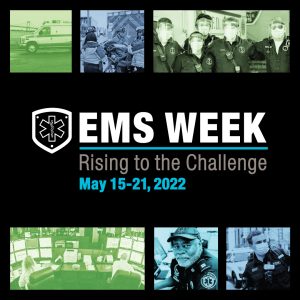(RICHMOND, Va.) — The Virginia Department of Health (VDH) is announcing a statewide outbreak of meningococcal disease. Twenty-seven cases of meningococcal disease, caused by the bacteria called Neisseria meningitidis type Y, have been reported in eastern, central, and southwest Virginia since June 2022. This development is three times the expected number of cases during this time period. Most cases are residents of eastern Virginia, where a regional outbreak was first announced in September 2022. The most recent notice to the public was shared in March 2023. Five patients have died from complications associated with this disease. The strain associated with this outbreak is known to be circulating more widely in the United States. Risk to Virginia’s population is low.
Meningococcal disease is a rare but serious illness. It takes close or lengthy contact to spread these bacteria. The bacteria spread from person to person through the exchange of respiratory and throat secretions (e.g., kissing, coughing or sneezing directly into the face of others, or sharing cups, water bottles, eating utensils, and cigarettes). In general, and while this outbreak continues, VDH recommends:
- Don’t share personal items (e.g., vapes, lipsticks, toothbrushes).
- Practice good hand hygiene.
- Avoid close contact with people who are sick.
- Do not delay seeking care if you experience symptoms of meningococcal disease.
- Ensure adolescents and teenagers receive the meningococcal conjugate vaccine (MenACWY) on schedule at 11 or 12 years of age and then a booster dose at 15-16 years of age.
- Speak to your healthcare provider if you are at increased risk for meningococcal disease to ensure you are up to date on the MenACWY vaccine.
This bacterium can be commonly found in the nose and throat of people without causing disease. Rarely, people can develop serious forms of illness, such as meningitis (inflammation of the lining of the brain and spinal cord) or septicemia (a bloodstream infection). Symptoms can first appear flu-like and may quickly become more severe. Meningococcal disease can be treated with antibiotics, but quick medical attention is extremely important. You should not delay seeking care if you or a loved one experience the following symptoms: fever, chills, headache, stiff neck, nausea, vomiting, sensitivity to bright light, and possibly a rash.
VDH has not identified a common risk factor; however, genetic sequencing of available specimens has confirmed that the cases are highly genetically related. Most case-patients are Black or African American adults between 30-60 years of age. Twenty-six case-patients were not vaccinated for Neisseria meningitidis type Y.
The meningococcal conjugate vaccine (MenACWY) can provide protection against Neisseria meningitidis type Y. VDH encourages parents and healthcare providers to make sure that children receive all recommended vaccines. Teenagers should receive their first dose of MenACWY vaccine prior to entering 7th grade, and a booster dose before 12th grade. If you are a part of a group that is at increased risk for meningococcal disease, including people living with HIV, those whose spleen is damaged or removed, people with sickle cell disease, anyone with a rare immune condition called “complement deficiency” or anyone taking a type of drug called a “complement inhibitor,” you should talk to your healthcare provider to make sure you are up to date on the MenACWY vaccine. Contact your local health department if you have questions about your options for accessing the MenACWY vaccine. For additional help contacting your local health department, call 877-VAX-IN-VA (877-829-4682, TTY users call 7-1-1). Assistance is available in English, Spanish, and more than 100 other languages.
The latest information is available on the VDH meningococcal disease outbreak response website. Data are updated monthly (first Tuesday).

